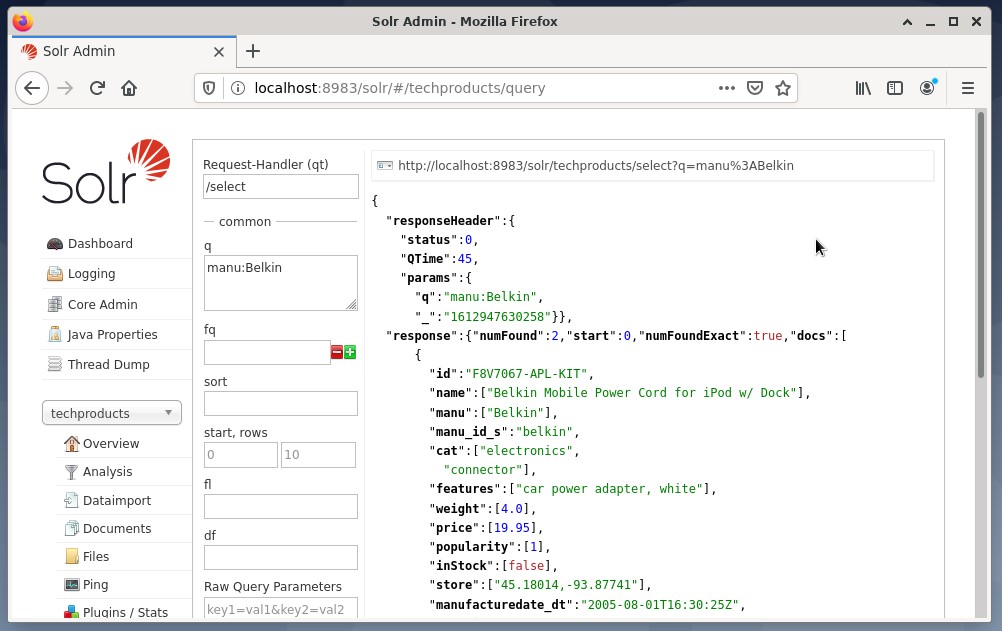

Also, relatively few commits span both projects. As Mike Sokolov noted, “A substantial number of people commit to both, over time, although most people do not. This divergence isn’t complete, of course. The two projects have continued to attract healthy, largely independent development communities, with new feature work happening in one or the other, not both. SEE: 5 developer interview horror stories (free PDF) (TechRepublic)
#Using apache lucene code
Solr depends on Lucene, but Lucene doesn’t depend on Solr, and tying Lucene to Solr has, among other things, made it harder to innovate the Lucene code at a pace many of its developers would like. Keeping the two together has become a burden over time. Regardless, the two projects have been tightly bound since 2010 when the Lucene and Solr project management committees (PMC) voted to merge the two projects because “there was a lot of code duplication and interaction between Solr and Lucene back then,” as Dawid Weiss explained. Others want to fiddle more with the dials and knobs of Lucene and don’t rely on Solr. A wide array of companies (Ford, Salesforce, etc.) use Solr to provide search on their websites without needing to build an application to make use of the Lucene library. One way to think about Lucene and Solr is as a car and its engine. Lucene is a full-text search engine library, whereas Solr is a full-text search engine web application built on Lucene. While most people reading this won’t have any familiarity with Lucene, Solr, or Elasticsearch (a distributed search application that relies on Lucene), we use them every day. While disentangling the two projects (build infrastructure, source code, etc.) will take time, users will benefit.
#Using apache lucene software
As such, you can be forgiven for not noticing that a few weeks back the Lucene/Solr community voted to break up, breaking Solr out from under Lucene and reversing the merger of the two a decade earlier, which you also likely missed.Īnd yet the designation of Solr as a top-level Apache Software Foundation project matters, and not just for the developers who contribute to one or the other (or both).

It’s also very possible that you have no clue how Lucene/Solr work, or how they’re developed. It’s very possible that you rely on Apache Lucene and Apache Solr every day, whether you’re looking for jobs on LinkedIn, trying to find that “bird-carries-shark” video on Twitter, or looking up random facts on Wikipedia.
#Using apache lucene how to
Image: photo_Pawel, Getty Images/iStockphoto Must-read developer coverageĬI/CD platforms: How to choose the right system for your business The projects recently split for the same reason, which is a really good thing for users of search services. Is a snippet of how a directory of documents can be handled using Lucene 4.Why the Apache Lucene and Solr “divorce” is better for developers and usersĬommentary: A decade ago Apache Lucene and Apache Solr merged to improve both projects. Object obtained in Lesson 1 we will procede to indexing file content for each Periodically, IndexWriter will merge a set of.A segment is created whenever IndexWriter.A segment is a standalone index for a subset of.Lesson 2: Automate text extraction and indexing fromĮach Lucene index consists of one or more segments:


 0 kommentar(er)
0 kommentar(er)
